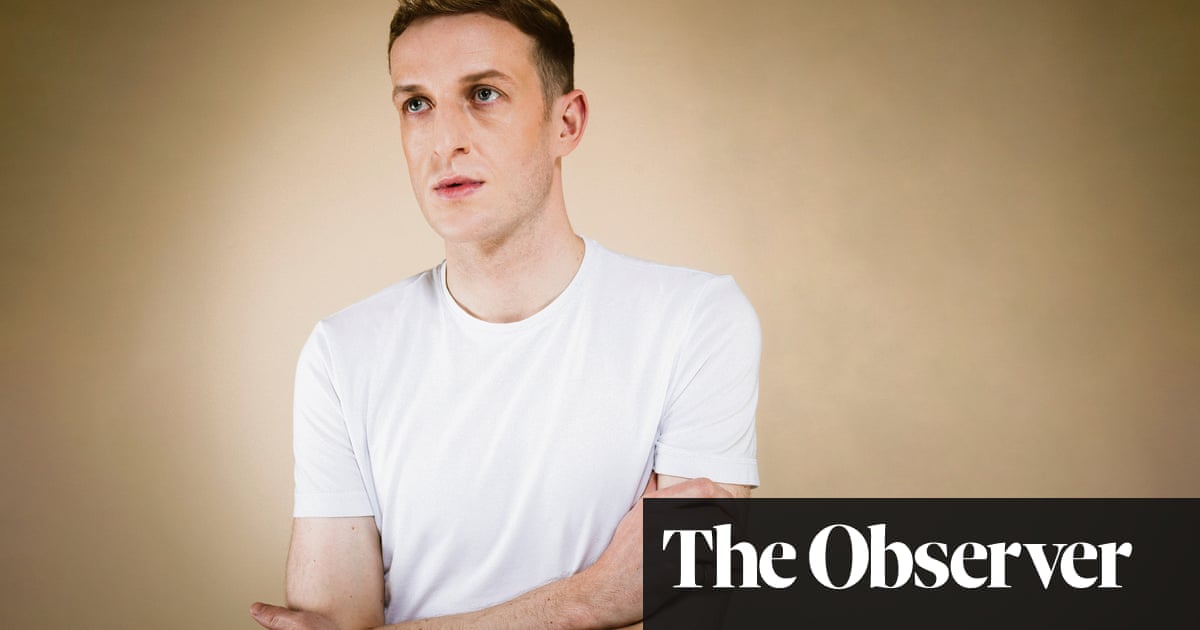
’ve always struggled with the concept of asking for help. To me it seems like acknowledging a failure, raising a hand and declaring myself inadequate. Mental health is in the news every day; in theory it’s never been more acceptable to talk about it, yet I still feel nervous as I write this. On the surface I am eternally positive. I’m someone who likes making people laugh. I joke around a lot. That’s the me I like people to see, and to remember. But I also have the ability to self-destruct in spectacular style.
I work hard, but to the point where I become obsessive. Writing a book can feel like life or death. I was fanatical in my A-level revision and then, the night before my economics exam, I got so drunk I woke up in hospital. I didn’t go to university. I had no idea what I wanted to do. So I bounced from job to job. I worked in supermarkets, bars, sold electrical cabling. It was when I was out dropping leaflets that I was mugged.
I was 19. The mugger wasn’t particularly big, and I didn’t particularly want to give him my phone. I punched him. We had a fight. It was fairly evenly matched, until he pulled out a kitchen knife. I didn’t run. I wonder now why that was. I don’t think it makes me brave, and I’d certainly tell my own children to run away in that situation. He stabbed me a couple of times, in the side; I still have the scars. And then he lifted the knife up and aimed for the centre of my chest. I grabbed his hand. He dropped the knife. I dropped my phone. He picked up both and ran off. I stood there bleeding until he was gone.
Reading that back now, it sounds pretty traumatic, but at the time I remember thinking it could have been much worse. Bad things happen every day, we all know that, we just hope they won’t happen to us. Wrong place, wrong time. For a while I thought I was OK, and then everything just went horribly wrong.
I stopped sleeping. I stopped eating. I so desperately wanted to shrug it off and move on, but I just couldn’t work out what was happening to me. I remember trying to read a book, and being stuck on the same page for an hour. I’d try to watch a film, then totally forget the plot. I tried running, but ended up running so far I had to catch a bus back home. Even now, it’s hard to put into words just how bad it was. I stood in front of a mirror and didn’t recognise myself.
I started drinking and taking drugs – often alone – because it made me feel nothing for a while. I didn’t know how to cope with what had happened, or how to ask for help. I didn’t even want to ask for help. I just wanted to die.
Outwardly, there was no preamble to my suicidal thoughts, no cry for help. And yet I don’t think it would have come as a huge shock to those who really know me. I sat down, took out a paper and pen and wrote. It wasn’t some grand farewell, or even an apology, it was just me writing my story in the hope it might help my parents to understand.
That night, for the first time in close to a year, I properly slept. The next morning I woke up and wrote some more. It wasn’t a quick fix, magic pill type solution. But the more I wrote, the better I felt.
A long year passed before I gave some thought to the future. I read an article about a stockbroker, and he had this amazing life and drove a Ferrari and looked happy in the photograph.
“I’m going to be a stockbroker,” I announced to my brother.
He looked up from his cereal and frowned. “You’re shit at maths and you fucked up your A-levels.”
I paid for my exams with my credit card, marched into the City and managed to find an entry-level job. I threw myself into my new career with the kind of gusto that didn’t leave time to dwell on the past. Eighty-hour weeks. Sleeping at my desk.
I was happy, I made money and my bosses were happy. I made jokes and people laughed. My parents were proud of me. I felt I’d turned a corner and left behind that boy who was afraid to look in the mirror. I climbed the ladder and eventually worked my way on to a trading desk.
And then I lost a million pounds.
I’d broken my trading limits, then channelled my inner Nick Leeson and hidden the loss. I was young, stupid and largely unaware of just how serious the situation was. Inevitably, I got caught. I sat down with my bosses as they contemplated going to the police. They certainly could have. Instead, and I’m eternally grateful to them for this, they agreed to let me work to pay back half of it.
I owed them £500,000. I was in my early 20s.
I stopped sleeping. I stopped eating. I didn’t tell anyone. I got engaged and we planned a wedding. I started drinking and taking drugs to get me through the day. I still maintained that happy and successful facade, but behind closed doors I was in serious trouble. In the day we’d be viewing churches, at night I’d be checking the terms of my life insurance policy. Writing saved me. It helped when nothing else could. It grounded me, even on our honeymoon I would sit up writing when my wife thought I was sleeping.
I started out simply keeping a diary of the way I was feeling. From there I revisited the past, the trauma of being attacked. Only this time I changed the people involved to fictional characters, and also changed the outcome. I’d close my eyes and wring out every detail from that day, from the trees I could see, to the colour of the houses beside me. I worked and reworked the scene obsessively, until each sentence carried me back. I suppose it gave me a level of control I didn’t have at the time
It took years to work off the debt, but I did. And again I was the person I wanted to be. I was successful. My parents were proud. But then I started slipping again. This time there was no reason for it. Though I kept up the writing – often just odd scenes that didn’t run together, most so awful I could barely read them back – I didn’t give serious thought to writing a book until I came across an interview with John Hart, one of my favourite authors, who had turned his back on a successful law career in order to follow his dream.
My friends thought I was mad when I quit my job. My wife was pregnant, and a student at the time, but I needed the change. I needed to start living.
“I’m moving to Spain to write a book,” I announced to my brother.
He looked up from his beer and frowned. “You’re shit at spelling and you don’t speak Spanish.”
In Spain I wrote every minute of every day. Writing turned into this crazy, maddening pursuit to find the perfect story, the perfect paragraph, the perfect word. And, though I didn’t know it at the time, the years of practice had given me a good foundation to create a story. On our return to London, my debut novel, Tall Oaks, was plucked from the slush pile and I landed a publishing deal. The book was shortlisted for a Crime Writers’ Association Dagger. I went to a fancy award ceremony and was up against bestsellers. To my amazement, I won.
I still write constantly. I still allow the novels to drive me totally mad, and I still have trouble sleeping. If I’m honest, the fear of slipping again is my constant companion, whispering in my ear when I’m feeling low, tempering the gains when things are going well.
As well as writing, I trade in the stock market from home now. When it’s not shut due to coronavirus restrictions, I also work part-time in my local library. I recently received an email from John Hart, telling me how much he enjoyed my new novel. I resisted the urge to tell him he probably helped save my life.
• In the UK, Samaritans can be contacted on 116 123 or email jo@samaritans.org. You can contact the mental health charity Mind by calling 0300 123 3393 or visiting mind.org.uk. Other international helplines can be found at www.befrienders.org












